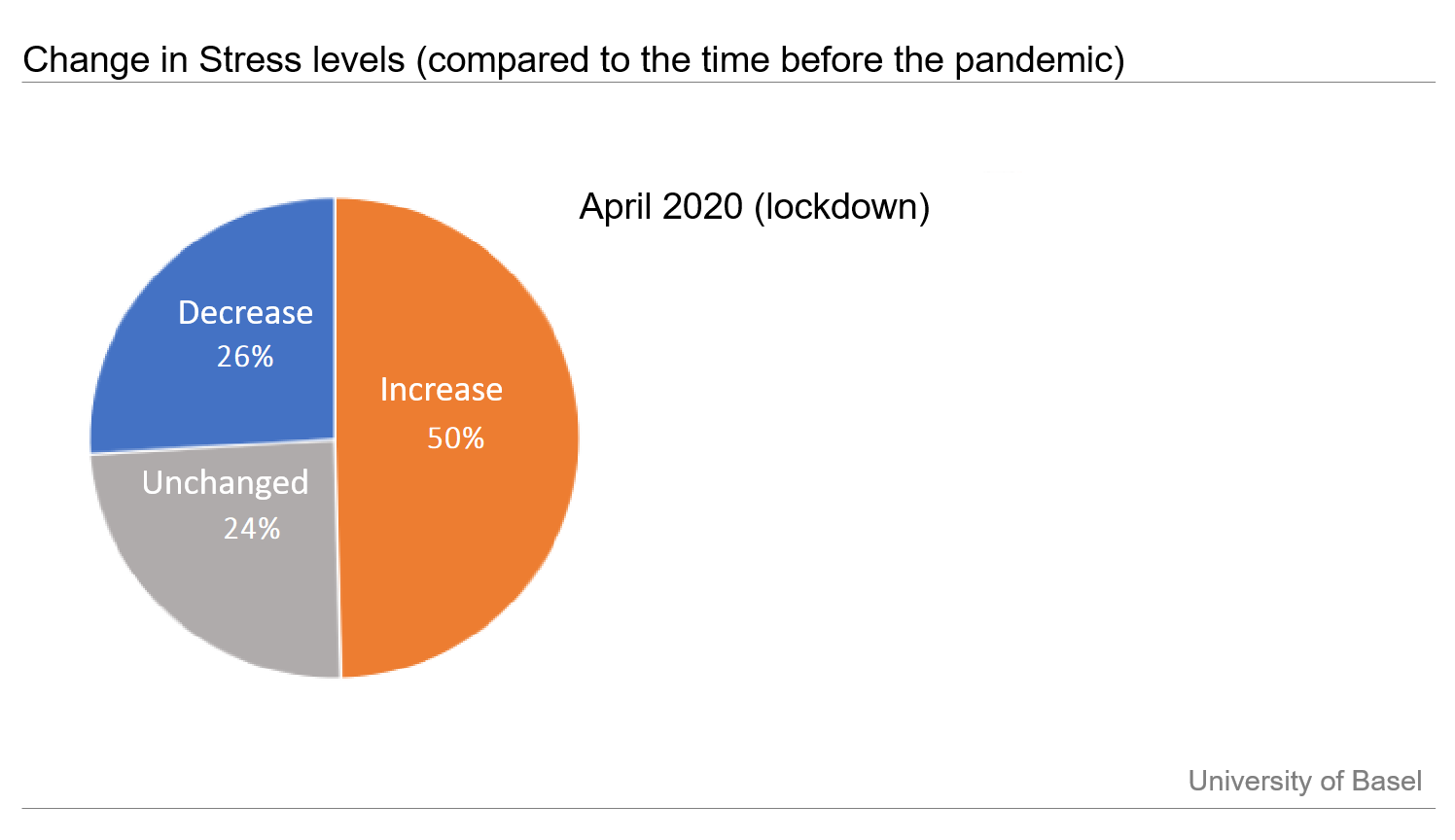Swiss Corona Stress Study
Shortly after the beginning of the Covid-19 pandemic, our co-president Dominique de Quervain and his collaborators at the University of Basel launched a large-scale study throughout Switzerland to assess the mental health consequences of the pandemic and to identify key risk and protective factors.
The first results come from a survey analyzing the period of 6-8 April 2020 - three weeks after the first lockdown was announced. Data from more than 10'000 people showed that almost half of the respondents felt more stressed during this period, mainly because of changes in work/studies and childcare among other factors. Interestingly, 26% of respondents felt less stressed, suggesting that the lockdown involved a reduction of stressors and/or more time for recovery. The changes in stress levels were also correlated with changes in depressive symptoms. Finally, several factors were identified as protective with regard to stress and depression: physical activity, devoting time for a hobby or a project and consuming less coronavirus-related news.

The latest survey is from November 2021. It shows that psychological stress remains high during the pandemic. However there are significant differences between vaccinated and unvaccinated individuals with regard to stressors, especially with regard to the stress caused by the measures and the fear of the health consequences of Covid-19. Among vaccinated parents of children aged 4-11 years, the fear of their children becoming infected is much higher than among unvaccinated parents. The proportion of respondents with severe depressive symptoms is 19%, with vaccinal status not playing a significant role. Those most affected by severe depressive symptoms are those who had suffered financial loss, those whith a psychiatric history and young people. For the youngest age group (14-24 years), school pressure is the most important stressor.